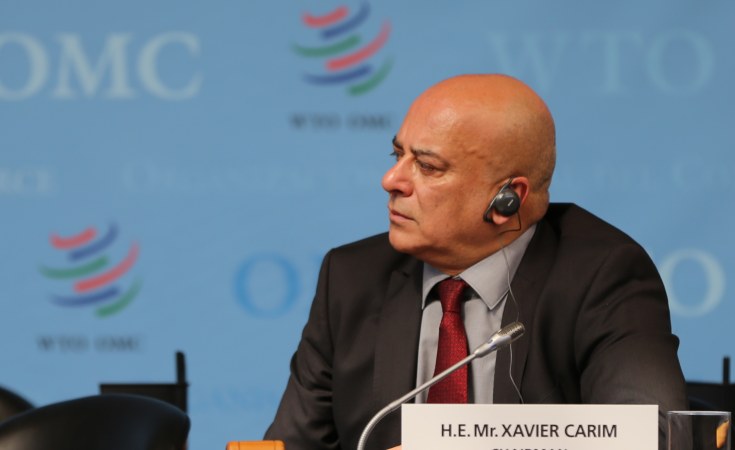Geneva — Xavier Carim, South Africa's Ambassador to the World Trade Organization and the outgoing chairman of the WTO's General Council, quoted words from a speech by his former president, Nelson Mandela, 20 years ago when he called for just rules for international trade.
The newly elected chairman of the General Council, Junichi Ihara of Japan, took over from Carim on March 7 after new members were elected to the body that oversees the regular work of the 164-member WTO.
Another southern African ambassador, Sabine Böhlke Möller of Namibia, has been elected to the WTO's Working Group on Trade and Transfer of Technology.
Carim has served in a number of key posts at the WTO and chaired the General Council for year ending on March 7.
Quoting Mandela's speech at an event commemorating the 50th anniversary of the GATT (General Agreement on Tariffs and Trade), which preceded the WTO, he said many of the issues raised by Mandela then regarding global trade issues remain relevant today.
Carim noted that the late president Mandela had stated, "Rules must be applied… but if they contain prescriptions that cannot be complied with by all, or if the results benefit too few, then injustice will emerge.
"Then it is prudent to remember that no amount of rules, or their enforcement, will defeat those who struggle with justice on their side."
Carim noted that President Mandela was drawing on his own experience of South Africa's struggle for freedom and said it has a bearing on the WTO's work.
He said the WTO's work is not immune to the growing concerns about the impact of globalization, trade and trade agreements on job security, inequality and development.
He noted that such concerns had been raised by many developing countries in the past, "but the fact that similar concerns are now more strongly voiced by citizens across developed countries is a significant new development and manifests in ways that deeply affect our work."
"In our organization, where decisions are taken by consensus, ongoing and practical expressions of the principles of transparency and inclusivity are a baseline for a fairer, more inclusive and developmental multilateralism," said Carim.
At a minimum, he said, inclusivity requires that WTO processes and decisions fully consider the views of members from the different geographic regions, at different levels of development. He also said the decisions and processes should also fully engage with the competing policy perspectives and priorities of WTO members.
Carim spoke in the same week that WTO director-general Roberto Azevêdo warned WTO members to avoid triggering an escalation in trade barriers that could result in a global trade war. Azevêdo spoke after threats made by U.S. President Donald Trump and Trump's undermining of the world trade body's adjudicating body.
Dispute Settlement Body
In 2016 Carim served as chair of the WTO's Dispute Settlement Body, which Trump has been taking aim at. The United States has been blocking new appointments to its adjudicating body.
Before assuming his post in Geneva, Carim, who was educated in Toronto, Canada and has a master's degree from Rhodes University in South Africa, was the Chief Director of his country's Department of Trade and Industry.
The WTO is a multilateral organization that works on consensus to that often require the spirit of compromise from many different entities to reach agreement on complex negotiations.
Some WTO members fear that the Trump administration might try to unravel its rules-based system, that is why Carim's call is one they hope will be heeded.
South Africa has been a WTO member since it began in 1995 and a member of GATT since 13 June 1948.
-


